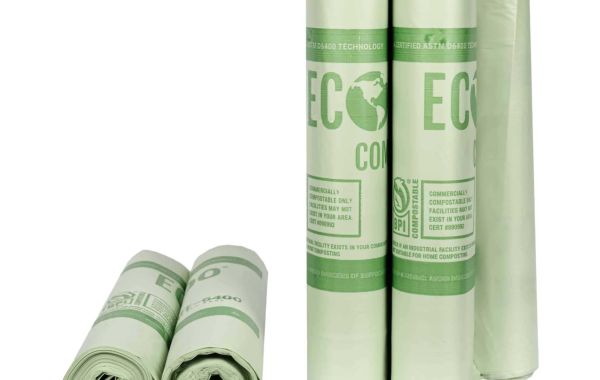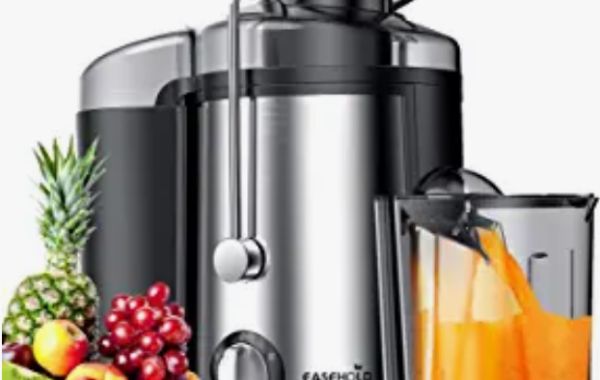Welcome to our blog post on compostable trash bags! Are you looking for eco-friendly alternatives to plastic waste? Do you want to make a positive impact on the environment while managing your household waste? If so, then composting and using compostable trash bags might just be the solution you've been searching for. In this article, we will explore the world of composting, why it is important, how to get started, and most importantly – how compostable trash bags can play a vital role in promoting sustainable waste solutions. So let's dive in and discover how going green with compostable trash bags can help us create a cleaner and greener planet for future generations
What is composting?
Composting is a natural process that transforms organic materials, such as kitchen scraps and yard waste, into nutrient-rich soil. It's like nature's recycling system! When we compost, we create an environment where microorganisms break down these materials over time, turning them into a dark and crumbly substance known as humus.
The beauty of composting lies in its ability to divert waste from landfills while simultaneously providing nourishment for plants and improving soil health. By composting our organic waste instead of throwing it away, we can reduce greenhouse gas emissions and conserve landfill space. Plus, the resulting compost acts as a natural fertilizer that enriches gardens, lawns, and potted plants.
To start your own compost pile or bin at home, all you need are some basic ingredients: brown materials (like dry leaves or straw) for carbon; green materials (such as fruit peels or grass clippings) for nitrogen; water to keep the pile moist; and air circulation to facilitate decomposition. Layer these ingredients together in the right proportions, turn the pile occasionally to aerate it, and let nature do its magic!
Remember that not all types of food scraps can be added to your compost pile – meat products or dairy items should be avoided due to their potential for attracting pests. Stick with vegetable scraps, coffee grounds, eggshells, and garden trimmings instead.
By embracing the concept of composting in our daily lives, we become active participants in reducing waste generation while promoting sustainability on both small-scale household levels and larger community initiatives. So why not join the movement towards greener living by incorporating this simple yet impactful practice into your routine? And when it comes to managing your compostable waste efficiently – enter stage left: compostable trash bags!
Why composting is important
Composting is not just a trendy buzzword; it's an essential practice for creating a more sustainable future. But why is composting so important? Let's explore the reasons.
First and foremost, composting helps to reduce waste that would otherwise end up in landfills. When organic materials like food scraps and yard waste are sent to landfills, they decompose without sufficient oxygen, producing harmful greenhouse gases such as methane. By diverting these materials into compost bins instead, we can significantly reduce methane emissions and mitigate climate change.
Additionally, composting enriches soil health by providing valuable nutrients and improving its structure. The nutrient-rich humus created through the decomposition process acts as a natural fertilizer, enhancing plant growth and reducing the need for synthetic chemicals.
Furthermore, incorporating compost into gardens or agricultural fields increases water retention capacity in the soil. This helps conserve water resources by minimizing runoff and promoting healthy plant root development.
Composting also offers economic benefits. Municipalities that implement effective composting programs can save on landfill costs while generating revenue through selling finished compost to farmers or gardeners.
Moreover, when we embrace composting as individuals or communities, we contribute to building a circular economy where waste becomes a valuable resource instead of being wasted in landfills.
In conclusion (as per instructions), embracing composting is crucial for conserving our environment, reducing greenhouse gas emissions, enriching soil fertility, conserving water resources, saving money on landfill costs and promoting sustainability at both individual and community levels. So let's all go green with compostable trash bags!
How to compost
How to compost
Composting is a simple and effective way to reduce waste and create nutrient-rich soil for your plants. By recycling organic materials, you can minimize the amount of trash that ends up in landfills while also providing a natural fertilizer for your garden.
To start composting, choose a suitable location in your yard or consider using an indoor composter if space is limited. Next, gather together your green and brown materials. Green materials include fruit and vegetable scraps, coffee grounds, grass clippings, and plant trimmings. Brown materials consist of dry leaves, straw, shredded newspaper, and cardboard.
Layer these materials in your compost bin or pile – alternating between green and brown – to achieve the right balance of nitrogen (from the green) and carbon (from the brown). It's important to keep your compost moist but not too wet; aim for a consistency similar to that of a damp sponge.
Regularly turning or aerating your compost will help speed up decomposition by providing oxygen to the microorganisms at work breaking down the organic matter. Within several months to a year, depending on various factors such as temperature and moisture levels, you will have rich dark compost ready to use in your garden beds or potted plants.
By following these steps for proper composting techniques, you can actively contribute towards reducing waste while also enriching your garden with natural fertilizers! So go ahead - start transforming kitchen scraps into black gold today!
What can be composted?
What can be composted? This is a common question among those interested in sustainable waste solutions. The good news is that many organic materials can be composted, reducing the amount of waste that ends up in landfills.
First and foremost, food scraps are excellent candidates for composting. Fruits and vegetables, coffee grounds, tea bags, eggshells – all of these can go straight into your compost pile or bin. Just remember to avoid meat and dairy products as they can attract pests.
Garden waste is another valuable addition to your compost heap. Grass clippings, leaves, weeds (as long as they haven't gone to seed), and pruned branches can all be thrown in with your kitchen scraps.
Paper products like shredded newspaper or cardboard make great "brown" material for balancing out the nitrogen-rich food waste. Just make sure to tear them into small pieces before adding them to the mix.
Even household items like dryer lint (from natural fibers) and hair from brushes or pets' fur can find a new life in the compost pile.
Remember though: never add diseased plants, pet waste (unless you have a specialized system), or any synthetic materials – stick strictly to organic matter!
By diverting these items from traditional garbage bins and landfills, you're not only minimizing your environmental impact but also creating nutrient-rich soil amendment for gardening purposes. So start collecting those kitchen scraps today!
Compostable trash bags
Imagine a world where our trash doesn't end up in overflowing landfills, but instead turns into nutrient-rich soil. That's the beauty of composting, and compostable trash bags play a crucial role in this sustainable waste solution.
Composting is the process of breaking down organic materials to create nutrient-rich soil called compost. This natural fertilizer can be used to enrich gardens, grow healthier plants, and reduce our reliance on chemical-based fertilizers.
Composting is important for several reasons. First and foremost, it helps divert waste from landfills, reducing greenhouse gas emissions and environmental pollution. Additionally, composting reduces the need for synthetic fertilizers that can harm ecosystems and contaminate water sources.
To start composting at home, you'll need a few key ingredients: organic matter (such as fruit scraps or yard waste), moisture, oxygen, and beneficial microorganisms. By providing these elements in the right proportions and maintaining proper conditions (like turning your pile regularly), you can speed up the decomposition process.
Many organic materials can be composted. Fruit peels, vegetable scraps, coffee grounds, tea bags - all of these kitchen waste items are perfect candidates for composting. Yard trimmings like grass clippings or leaves are also great additions to your pile.
Now let's talk about compostable trash bags - an eco-friendly alternative to traditional plastic garbage bags. These innovative products are made from plant-based materials such as cornstarch or sugarcane fiber that break down naturally in a compost environment.
When using compostable trash bags properly during food scrap collection or general household waste disposal routines, they help contain odors while allowing moisture to evaporate without causing any harm during decomposition.
You may wonder where you can buy these environmentally friendly alternatives? Many grocery stores now carry them alongside regular garbage bags or online retailers offer various options with different sizes and thicknesses to suit your needs.
Using compostable trash bags is simple! Just use them as you would any other garbage bag, but make sure to dispose
Where to buy compostable trash bags
Looking for a convenient and sustainable way to dispose of your waste? Compostable trash bags are the answer! These eco-friendly alternatives to traditional plastic bags not only help reduce landfill waste but also provide a solution for those who want to embrace composting. But where can you find these innovative products?
Fortunately, there are several options available when it comes to purchasing compostable trash bags. Many local grocery stores now carry them in their household cleaning or kitchen supplies sections. You might also find them at specialty stores that focus on environmentally friendly products.
If you prefer the convenience of online shopping, there are numerous websites dedicated to selling compostable trash bags. Online marketplaces like Amazon offer a wide selection from different brands, allowing you to compare prices and read customer reviews before making a purchase.
Additionally, many companies that specialize in sustainability and zero-waste living sell compostable trash bags directly through their websites. By supporting these businesses, you not only contribute towards reducing waste but also support ethical and eco-conscious practices.
Remember to check the product details before buying compostable trash bags – look for certifications such as ASTM D6400 or BPI certification ensuring they meet industry standards for biodegradability.
So why wait? Start reducing your environmental impact today by switching to compostable trash bags! Whether you choose local retailers or online platforms, finding these sustainable alternatives is easier than ever before. Make your contribution towards creating a greener future while effectively managing your waste!
How to use compostable trash bags
Using compostable trash bags is a simple and effective way to reduce your carbon footprint while properly managing waste. Here are some tips on how to use compostable trash bags:
1. Choose the right size: Select compostable trash bags that suit your needs, whether it's for kitchen scraps or yard waste. Make sure they fit securely in your compost bin or container.
2. Line your bins: Place a compostable bag inside your garbage bin or container to collect organic waste. This helps keep the bin clean and makes it easier to transport the contents to an outdoor compost pile.
3. Avoid moisture buildup: Compostable bags can break down more easily if they become wet, so be mindful of excess liquids when disposing of food scraps. You can also place a layer of absorbent material like newspaper at the bottom of the bag.
4. Close and seal properly: Tie off or secure the top of the bag before removing it from your home or transferring it to an outdoor composter. This prevents any potential spills during transportation.
5. Transport with care: When taking filled compostable bags outside, handle them gently to prevent tearing or leakage.
6.
Carefully empty contents: Empty the contents of your compostable bag into a larger outdoor composter designated for organic waste disposal.
By following these steps, you can effectively utilize compostable trash bags as part of your sustainable waste management routine!
Conclusion
Conclusion
Choosing to go green with compostable trash bags is a step towards promoting sustainable waste solutions and reducing our environmental impact. Composting not only helps divert organic waste from landfills but also allows us to create nutrient-rich soil that can be used to nourish plants, gardens, and landscapes.
By incorporating composting into our daily routine and using compostable trash bags, we can contribute to the circular economy by closing the loop on organic materials. These eco-friendly alternatives are made from renewable resources and break down naturally without releasing harmful toxins or microplastics into the environment.
When it comes to purchasing compostable trash bags, there are various options available both online and in stores. Look for certifications such as ASTM D6400 or EN 13432, which ensure that the bags meet specific standards for compostability.
To use compostable trash bags effectively, remember some key points:
1. Separate your organic waste: Keep your food scraps and other biodegradable materials separate from non-compostable items.
2. Line your bin with a compostable bag: Place a compostable trash bag inside your kitchen or yard waste bin to collect organic matter.
3. Store properly: Ensure that you store your filled compostable bag in a cool and dry place until ready for disposal.
4. Dispose of correctly: When it's time to empty the contents of your bag, dispose of them in designated municipal or home compost systems.
Incorporating these simple steps into our daily lives not only reduces landfill waste but also fosters healthy ecosystems and contributes positively towards mitigating climate change.
So why wait? Start making sustainable choices today by embracing the use of compostable trash bags! Together, let's make a difference for our planet one small step at a time.








